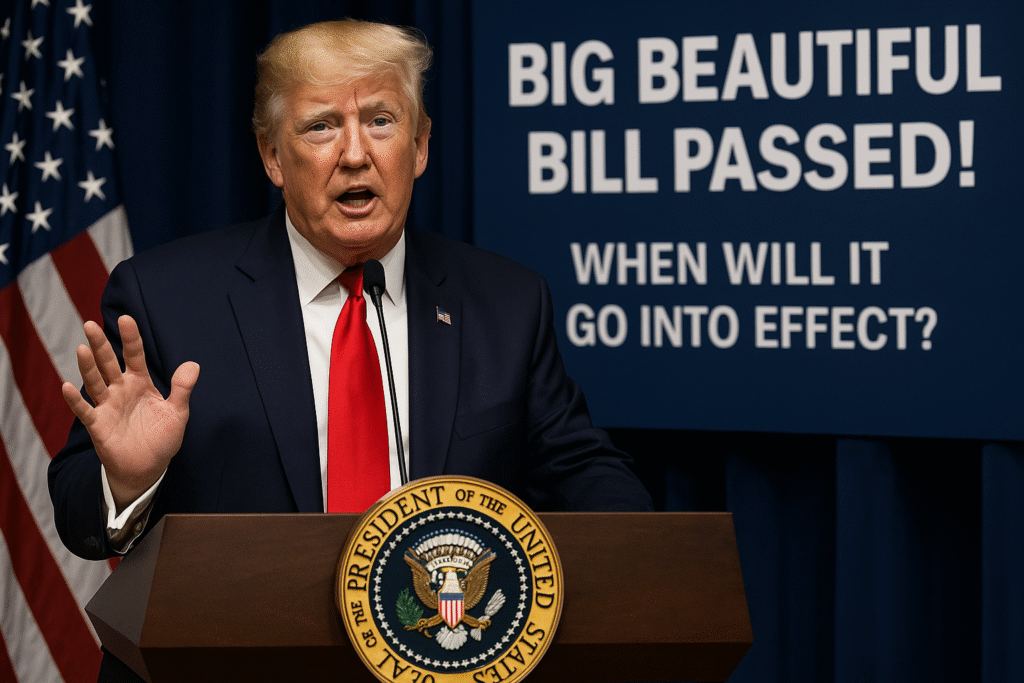
In a major development on Capitol Hill, House Republicans successfully rallied the votes needed to pass former President Donald Trump’s much-talked-about ‘Big Beautiful Bill’ this Thursday. The bill — which promises sweeping tax reforms and changes to key federal programs — is now headed to Trump’s desk for a formal signing ceremony set for the Fourth of July at 5 p.m. local time.
The legislation, considered one of the most significant tax and policy packages since 2017, secured a narrow 218-214 passage in the House, with two Republican members voting against party lines. This came just days after the Senate approved the bill, with Vice President JD Vance casting a decisive tie-breaking vote.
📌 What’s Inside the Big Beautiful Bill?
The bill offers a total of $4.5 trillion in tax breaks, extending and expanding several provisions from the Tax Cuts and Jobs Act passed during Trump’s first term. Some of the key features include:
- Permanent reductions in individual and estate taxes starting from tax year 2024.
- No tax on tips up to $25,000 annually for workers earning under $150,000.
- Overtime pay up to $160,000 will also be tax-exempt beginning next year.
- The SALT (State and Local Tax) deduction cap will temporarily increase to $40,000 for households earning up to $500,000, effective immediately upon signing but reverting after five years.
- Clean energy subsidies, including credits for electric vehicles and renewable projects, will phase out within 60 days of the bill’s enactment, except for nuclear projects underway before 2028.
📌 When Will the Bill Take Effect?
The Big Beautiful Bill doesn’t carry a single activation date. Its various provisions will be rolled out over the coming years:
- Tax cuts and deductions: Effective for tax years starting December 31, 2024.
- Healthcare program changes: New Medicaid work requirements will start from December 31, 2026.
- SNAP reforms: New cost-sharing rules for states will be implemented in 2028.
- Border security funding: Immediate upon signing, with personnel hiring and infrastructure projects beginning fiscal year 2026.
- Child benefits: The new $2,500 child tax credit and $1,000 newborn Trump Account kick in from 2025 through 2028.
📌 What’s Next?
Following the House vote, the White House confirmed that President Trump would address the nation before the signing ceremony. If enacted, this bill could reshape tax codes and social programs for years to come, making it one of the hallmark pieces of Trump’s policy legacy should he reclaim the presidency.


